-
•
•
5 responses
-
•
•
12 responses
I sit, waiting for the phone to ring. I haven’t spoken to my parents since December and, though I love what I’m doing, I love them, too. But I’ve been sitting here for almost an hour. I’m not 100% sure of the time zone difference between eastern Brazil and the western United States, but I’m pretty sure they’re late. In this area, none of our members have phones. One of our member’s father has a phone, but, in order to call, I’ve promised that it won’t cost him anything. It’s a party line, something I’d heard about in the U.S.… Read More
-
•
•
12 responses

Mother’s Day is a bit like Christmas time in terms of the mass solicitations sent out from various NGOs. To be honest, these are perhaps the only mass emails that I don’t mind. And I frankly agree with their general point: what better way to wish your own mother a Happy Mother’s Day than by contributing to another mother in her name? Read More
-
•
•
29 responses
Can you remember everyone who has made the news during the past year? Neither can I. As a result, when we get input each December about who should be “Mormon of the Year,” there is, I think, a bias towards recent events. If a Mormon showed up in the news during the last quarter of the year, that person is remembered. But if the person made the news only during the first quarter, no one remembers them. So what should we do? Read More
-
•
•
7 responses
This is the third of four categories explaining why translations differ. 3) How does the translator resolve ambiguities on the word-level? Hebrew writing did not indicate doubled letters (which are significant) or vowels until the 8th/9th century AD*, when Jews who had memorized the pronunciation of the traditional text came up with a system (three, actually) of indicating the pronunciation in the text with marks above, below, and inside the consonantal text. That, again, is a thousand-year gap. Scholars vary in how much weight to give the vowel-pointing (niqqudot, or just “pointing”), but at times, greater sense can be made… Read More
-
•
•
Here is the second of four categorical reasons why translations may differ. 2) How does the translator parse the mechanics (syntax, etc.) and disambiguate the text on the sentence and paragraph level? (NB: This is a very simplified presentation of complex subjects.) Biblical Hebrew is very different from English. Like many other ancient languages, it has no formal punctuation, no capitals, and word order can vary. Consequently, it’s not always easy to figure out if this word belongs to end of this phrase or the beginning of that one. Sometimes it’s hard to tell where one sentence ends and another… Read More
-
•
•
3 responses
Before looking at the two sample passages in detail, I want to familiarize you with some basic information about the Old Testament text and translation issues. And in the last part, I’ll make some suggestions about how to approach the text like this when you haven’t studied Greek or Hebrew. I’ve divided these into four semi-artificial headings, too long to all go in one post. 1) What are they translating from, and (1a) how much is the translation influenced by the versions? Translators must choose a base text from which to translate. Until the discovery of the Dead Sea Scrolls… Read More
-
•
•
39 responses
Krister Stendahl, the noted Swedish theologian who was unusually considerate of the LDS Church, listed “holy envy” as one of his three rules of religious understanding. Let’s see if comparing Mormon talks with Christian sermons doesn’t create for us a bit of holy envy. I think there might be something we can learn from how other Christian denominations preach from the pulpit on Sunday. Read More
-
•
•
21 responses
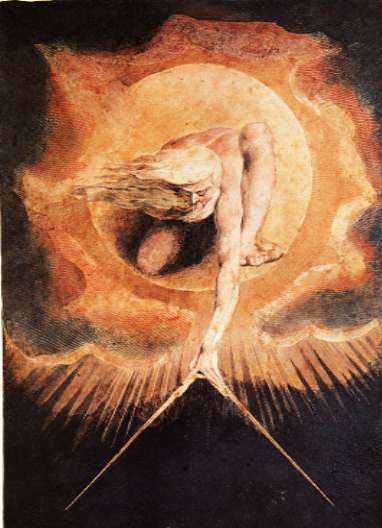
We’ve come to the last chapter of Blake Ostler’s first volume of Exploring Mormon Thought. After five months of reading and writing about this first book, I’m even more convinced than when we began that Blake’s work is and will continue to be the indisputable starting point for our generation’s work in Mormon philosophical theology. Read More
-
•
•
11 responses
I received the following from an educated friend, and got permission to respond via blogposts. Slightly edited, he asks- >>As someone without training in the original languages, how can I evaluate alternate translations of scripture? Here’s what motivates this question: I’ve been reading Grant Hardy’s Reader’s Edition of the Book of Mormon, which I love. I’ve been working through Nephi’s Isaiah chapters, and, as I started working through 2 Nephi 19/Isaiah 9, I decided it was time to check alternate translations. I have several: a 4-in-1 that includes KJV, New Life Translation (NLT), New International Version (NIV), and New American… Read More
-
•
•
13 responses
One Sunday evening, several months ago, I was playing around on FamilySearch, clicking back through my father, his father, his mother (or something like that), etc. After twists and turns—twists and turns I recorded so that I could get back there again—I discovered that I have ancestors from Jersey.[fn1] No, not that Jersey, the one famous for Bruce and the MTV show. Its namesake, the one in the English Channel. Through my clicking, I learned that my great-great-great-grandmother was born in Jersey in 1838 and died in West Bountiful in 1912. For most, this probably wouldn’t be remarkably meaningful. I didn’t… Read More
-
•
•
One response
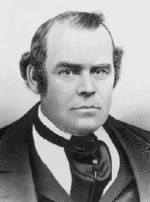
I think the most significant event in Mosiah 18-24 is the baptism of Alma and his followers in the Waters of Mormon. There we find the great description of the Baptismal covenant, in which those baptized …are willing to mourn with those that mourn; yea, and comfort those that stand in need of comfort, and to stand as witnesses of God at all times and in all things, and in all places… This event led me to a poem by Parley P. Pratt about Baptism, a hymn that seeks to encourage non-members to partake of the ordinance. Read More
-
•
•
4 responses
CHAPTER 18 1 And now, it came to pass that Alma, who had fled from the servants of king Noah, repented of his sins and iniquities, and went about privately among the people, and began to teach the words of Abinadi— Are “sins” and “iniquities” two different things or two different ways of saying the same thing? Why “privately”? (See v3 for more on this.) I love the idea that he is a fugitive. From the FEAST wiki: “Why is it that Alma has success in preaching where Abinadi didn’t?” Do you interpret all of Abinadi’s teaching differently if you… Read More
-
•
•
61 responses
Let me tell you a little story. Not long ago, we moved to a new ward. After a few weeks, my husband and I were invited to come early to church to meet with a member of the bishopric. We figured, of course, that he wanted to extend a calling to one or both of us. When we arrived, he asked my husband to come in and speak with him first. So I assumed that my husband was getting the calling. To my surprise, after I was ushered into the room, the bishop’s counselor extended a calling to me. He… Read More
-
•
•
16 responses
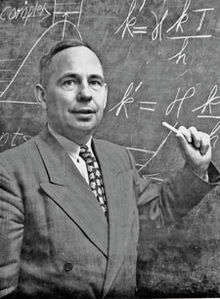
This wisdom is often attributed online to Elder Henry B. Eyring, but none provides a source. It was Henry Eyring Sr., non-Apostle and brilliant prolific scientist who gave this nugget of wisdom. However, Henry Eyring Jr. apparently took the lesson to heart, as he has said similar things. And perhaps he quotes his father somewhere. “There are few ways in which good people do more harm to those who take them seriously than to defend the gospel with arguments that won’t hold water. Many of the difficulties encountered by young people going to college would be avoided if parents and… Read More
-
•
•
90 responses
With the exception of student wards, every ward or branch I’ve attended seems to rely on a few families to fill all of the major callings. We’ll call them “the same ten families.” In our Long Island branch, there were about six families that carried the load. The branch president was married to the young women’s president. The young men’s president was married to the Relief Society president. The Elder’s quorum president was married to the primary president. We weren’t president level material there: my husband was a counselor in the young men’s presidency and the gospel doctrine teacher while… Read More
-
•
•
26 responses
In an interview on A Motley Vision, Scott Hales, a Ph.D. student at the University of Cincinnati and the brains behind the recent Mormon Lit Blitz, tells two stories of introducing Mormon literature to students. The first group was dismissive of the Mormon poetry that Scott chose and read to them. But the second group enjoyed the short stories they read. What does it say that the first group was made up of Seminary students while the second group were non-Mormon university students? Read More
-
•
•
6 responses
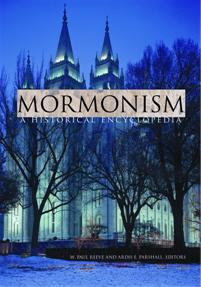
It is published as a reference work, but you can read it like a book, albeit a book of essays: Mormonism: A Historical Encyclopedia (ABC-CLIO, 2010; publisher’s page), edited by W. Paul Reeve and Ardis E. Parshall. Listing at $85 ($68 on Kindle), it might not find its way onto your bookshelf until a trade paperback version comes out in a few years, but at the very least it puts a very accessible LDS history reference on the shelves of America’s libraries and newsrooms, featuring 140 entries covering individuals, places, events, and issues. I stumbled across a library copy that… Read More
-
•
•
13 responses
I haven’t any real idea who or what or how—or even when!—Jesus Christ was. And is. And will be. As odd as I’m sure it sounds, I’m not terribly interested in changing that situation. I suspect that, in large part, my ignorance and feeling of content concerning that ignorance are more a side effect than anything else, a side effect of the Pauline commitments that were created, nurtured, and cemented in me through my obsessive work on the Book of Mormon. The Christ to whom I have declared undying fidelity, of whom I consistently testify, concerning whom I couldn’t feel… Read More
-
•
•
67 responses
In Lectures on Faith, Joseph Smith taught that “a religion that does not require the sacrifice of all things never has the power sufficient to produce the faith necessary unto life and salvation” (Lecture 6, verse 7). The Church’s dramatic history demonstrates that this call to sacrifice was not mere rhetoric. Extolling the endurance of the pioneers is part of Mormon tradition. In talks and lessons members are repeatedly reminded of commandments and duties. Read More
-
•
•
6 responses
Perhaps the most striking part of the Book of Mormon covered in lesson 18 is the martyrdom of Abinadi. Like many martyrs who have suffered since his time, Abinadi testified of what he knew to be true only to find his testimony rejected and his life taken for it. He sealed his testimony with his life. Read More
-
•
•
5 responses
-
•
•
21 responses
I keep my visions to myself.Have you any dreams you’d like to sell? Mormons tend not to keep their visions to themselves. In his recent General Conference talk “How to Obtain Revelation and Inspiration for Your Personal Life,” Elder Richard G. Scott seems to be inviting Mormons to do the same with their dreams. Read More
-
•
•
24 responses

Writings on the scriptures often comes from one of two perspectives. 1) Devotional-but-clueless, i.e. the author is able to read/write devotionally on a passage because they don’t know any other way to read it. They don’t address context or difficulties or objections or avoid pitfalls, because they’re completely unaware of them. It’s often trite and shallow (and I don’t think you necessarily need length to have depth, lead to reflection, or inspire.) Lest I be misunderstood, it is entirely possible to be devotional and clueless, but still meaningful, I just think it’s rare and find little value in spending my… Read More
-
•
•
95 responses
Hiya, It has recently come to my attention that my ward and stake are in a gross state of apostasy. I was completely unaware of this until I saw this infographic on the LDS Newsroom site, but now that I know about it, I really think you need to send us some GAs to reorganize everything, because we’re doing it all wrong here in the suburbs of Austin (and every other place I’ve ever lived, come to think of it). Read More
-
•
•
One response
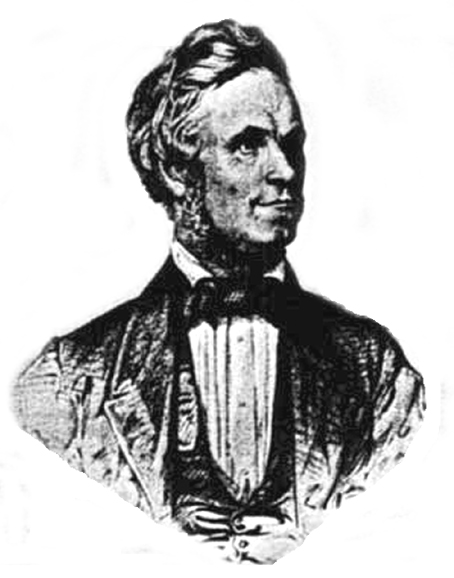
Often LDS lessons based on the scriptures cover such a broad range of topics in the scriptures given that the stated theme of the lesson doesn’t capture what is going on in the scripture passages. While this lesson is certainly one of those times, the poem I found is really about the stated theme of the lesson: prophets, seers and revelators. In early Mormon poetry and writings, this usually referred to one person: the Prophet Joseph Smith. Where today we talk more about prophets generally, for the first 30 years of Mormonism, the prophet mostly referred to Joseph Smith specifically.… Read More
-
•
•
5 responses
-
•
•
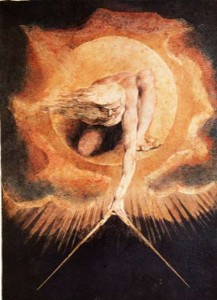
I don’t know much about God (which is probably pretty obvious), but I have thought a lot about sex. Read More
-
•
•
21 responses
Once upon a time, family law was a marginal legal topic that didn’t make many headlines the way constitutional law or criminal law so often do. But gay marriage and Prop 8 have propelled family law and marriage to the legal center stage. In an odd parallel development, “the family” has, over the last few years, moved to the center of LDS doctrine and practice as well, with “The Family: A Proclamation to the World” being the most visible evidence of that change. We are living in an intersecting perfect storm of changing family law, family doctrine, and family practice.… Read More
-
•
•
14 responses
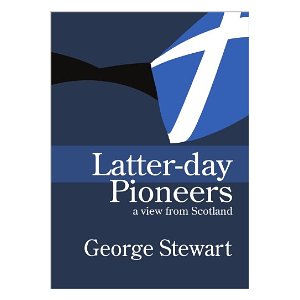
This year I’ve again managed to put together a bibliography of international works on Mormonism. While I thought the list was substantial last year, it is much larger this year, at least in part because I think I’ve gotten better at finding what has been published. With any luck this will help call attention to the international nature of Mormonism today and to the study of Mormonism outside of the U.S. The list includes any work that talks about Mormonism more than just in passing (as far as I can tell without actually having the work in hand) and that… Read More
